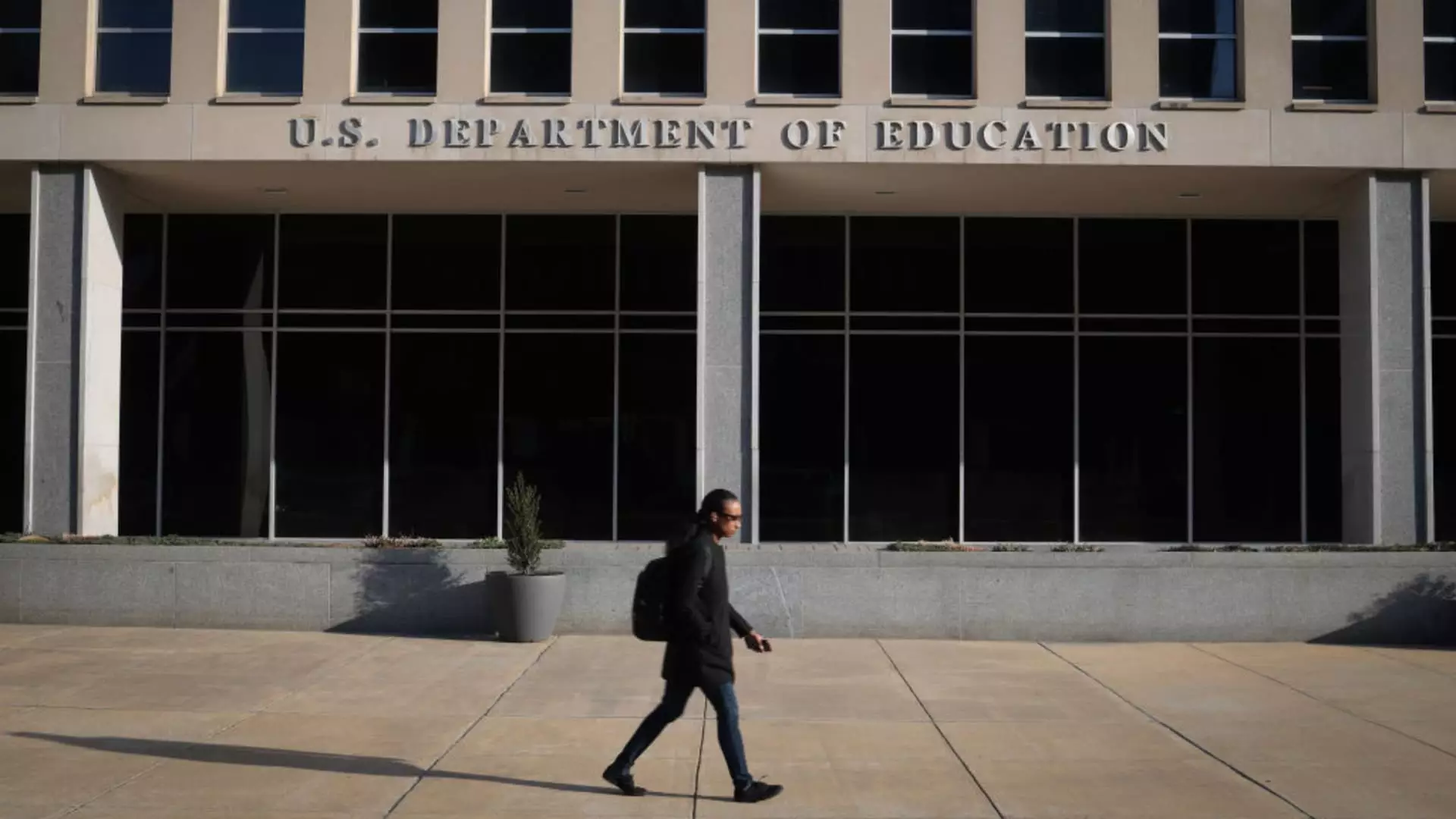The landscape of American higher education financing is fraught with treacherous pitfalls, not for the least of which is the recent lawsuit by the American Federation of Teachers (AFT) against the U.S. Department of Education. By shuttering avenues to affordable income-driven repayment plans, the Trump administration demonstrates an alarming disregard for the millions of Americans struggling under the weight of student debt. This legal action is more than a mere procedural skirmish; it signifies a critical moment in the ongoing battle for educational and economic equity.
Understanding the Implications of the Department’s Actions
The suspension of income-driven repayment (IDR) plans effectively sidelines a safety net intricately designed by Congress in the 1990s. The logic behind these plans is sound: borrowers should only have to pay a portion of their discretionary income towards their loans, with the potential for debt forgiveness after 20 to 25 years of consistent payments. However, the recent ruling from the 8th Circuit Court has intertwined this essential service with the broader political maneuverings of an administration seemingly intent on obstructing economic progress for working-class individuals.
According to estimates, approximately 12 million borrowers currently rely on IDR plans, a number that underscores the magnitude of this issue. When the Education Department halted applications for these vital repayment options, it not only paralyzed ongoing support but also cruelly left new borrowers stranded in an impenetrable financial fog.
Politics Over People: The True Cost of Policy Decisions
It’s hard to ignore the dismay surrounding the Trump administration’s approach when student loan issues seem to be treated as just another political chess piece. Statements from AFT President Randi Weingarten highlight a pattern: rather than fostering an environment where educational attainment can lead to economic uplift, the current administration appears bent on perpetuating a cycle of debt and hardship. In effect, the policies being executed serve more to reinforce political ideologies than to create pathways for prosperity.
Mike Pierce, executive director of the Student Borrower Protection Center, emphasizes the tragic reality behind these restrictive measures. Borrowers are increasingly finding themselves in a precarious position, grappling with rising monthly payments at a time when economic conditions are increasingly bleak. The notion that “politics plays a role” in matters as grave as student loans is not just cynical; it’s a stark revelation that should rattle the conscience of a nation that prides itself on opportunity.
The Future: A Call for Responsibility and Reform
With the hard facts laid bare, the urgent question becomes: What can be done to rectify this situation? Advocacy groups like the AFT are not just waging legal battles but are, in essence, calling for a complete re-evaluation of student debt policies that prioritize the welfare of individuals over political ambitions. We must ask ourselves—as citizens and as a society—what kind of future we envision for the younger generation laden with educational debt, and more crucially, how do we bridge the gap between ambition and opportunity?
No longer can we afford to let our education financing system be a mere pawn in a political game; its stakes are far too high for that.

